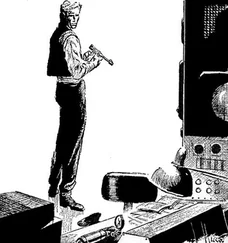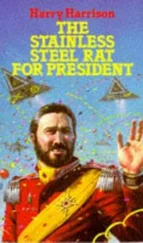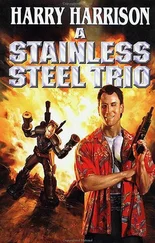Harry Harrison - The Turing Option
Здесь есть возможность читать онлайн «Harry Harrison - The Turing Option» весь текст электронной книги совершенно бесплатно (целиком полную версию без сокращений). В некоторых случаях можно слушать аудио, скачать через торрент в формате fb2 и присутствует краткое содержание. Год выпуска: 1992, ISBN: 1992, Издательство: Viking, Жанр: Фантастика и фэнтези, на английском языке. Описание произведения, (предисловие) а так же отзывы посетителей доступны на портале библиотеки ЛибКат.
- Название:The Turing Option
- Автор:
- Издательство:Viking
- Жанр:
- Год:1992
- ISBN:978-0-670-84528-6
- Рейтинг книги:3 / 5. Голосов: 1
-
Избранное:Добавить в избранное
- Отзывы:
-
Ваша оценка:
- 60
- 1
- 2
- 3
- 4
- 5
The Turing Option: краткое содержание, описание и аннотация
Предлагаем к чтению аннотацию, описание, краткое содержание или предисловие (зависит от того, что написал сам автор книги «The Turing Option»). Если вы не нашли необходимую информацию о книге — напишите в комментариях, мы постараемся отыскать её.
The Turing Option — читать онлайн бесплатно полную книгу (весь текст) целиком
Ниже представлен текст книги, разбитый по страницам. Система сохранения места последней прочитанной страницы, позволяет с удобством читать онлайн бесплатно книгу «The Turing Option», без необходимости каждый раз заново искать на чём Вы остановились. Поставьте закладку, и сможете в любой момент перейти на страницу, на которой закончили чтение.
Интервал:
Закладка:
And now his own internal sex-animal was chomping and salivating and taking over. A primitive agency way down in the brain stem — and he had to fight it!
“That’s not me!” he shouted out loud, slamming his fist onto the table so hard it hurt. “Not the whole me. Just a singularly stupid but powerful part. Balls galore!”
He was more than a rutting animal. He had intelligence — so why couldn’t he use it? How could he let a stupid subunit take control? Where was the mental manager that should have evaluated it and put it into proper perspective and place?
He took the can of soda with him, sipping at it slowly. Sat in front of his computer and opened a new file labeled SELF CONTROL, then leaned back and thought about what came next.
Most mental processes work unconsciously, because most subunits of his mind had to become autonomous — as separate as his hands and feet — in order to work efficiently.
When he had learned to walk as a baby he must have done it badly at first, stumbling and falling, then gradually improving by learning from mistakes. The old subunits for not-good walking must slowly have been replaced or suppressed by new agents for good-walking agents that worked more automatically, with less need for reflective thinking. So many agents, he thought, to be controlled by what? Right now, they seemed to be quite out of control. It was time for him to take them in charge; he must exercise more self-control. It was time that he, himself, must decide which of those subunits should be engaged. That mysterious, separate He, must be the manager, the central control that would correspond to the essence of Brian’s own consciousness.
“Those stupid AI programs could sure use a managing machine like that,” he said, then choked on the soda.
Was it that simple? Was this the missing element that would pull together all the separate pieces? The AI research labs were filling up with so many interesting systems these days at universities like Amherst, Northwestern, and Kyushu Institute of Technology. Rule-based logic systems, story-based language understanders, neural-network learning systems, each solving its own kind of problem in its own way. Some could play chess, some could control mechanical arms and fingers, some could plan financial investments. All separate, all working by themselves — but none of them seemed to really think. Because nobody knew how to get all those useful parts to work together. What artificial intelligence needed was something like that internal he. Some sort of central Managing Machine to tie all the subunits into a single working unit.
It couldn’t be that simple. There can’t be any such he in charge — because the mind doesn’t contain any real people, only a lot of subunits. Therefore, that he could not be any single thing — because no single thing could be smart enough. So that he must itself be some sort of illusion created by the activity of yet another society composed of subunits. Otherwise there would still be something missing, something to manage that Manager.
“Not good enough. I haven’t got it quite right yet. It will need a lot more working out.”
He saved the file with his thoughts — then noticed that there was one KIM file left on disk. The term paper for Betser. She had a copy of it — but she would never understand it, much less explain it when she was queried. Maybe he should save this one as well, after all she had been responsible for his idea about a managing program. No way! He hit delete and it vanished with all the rest.
The very last thing he did was put a lock on the computer so it would not accept calls from her phone. But this wasn’t good enough — she could still call from a public phone. He added a program that would turn away all incoming calls, no calls now or forever from anyone.
In the end he sat there tired and dry-eyed. Betrayed in every way.
Nothing like this was ever going to happen to him again. No one was ever going to get close enough to him to hurt him. He was going to think about his AI managing program and see if he could get it to work and forget about her. Forget about girls. Something like this was never going to happen to him again. Ever.
9
Coronado
April 2, 2023
The helicopter came in over the bay, past the bridge that connected the hooked peninsula of Coronado to San Diego. The roads below were sealed tight by security: the copter was not only the safest but was the fastest way in and out of the base. It swooped low over the gray shapes of the mothball fleet, quietly rusting into extinction since the end of the Second World War. They dropped down to the HQ helipad, dust clouds roiling out, and saw a stretched limo pull up.
“This seems like an awful lot of trouble to go to for a meeting,” Erin Snaresbrook snapped. “Some of us have work to do. This is totally ridiculous — when we could have had a teleconference.”
“All of us have work to do, Doctor, all of us,” Benicoff said. “You have only yourself to blame — this meeting was your idea. You must have realized that this was the only way that we could guarantee security.”
“A progress report, that was all that I said.” She raised her hand before Benicoff could speak. “I know. I hear the arguments. It is far safer here. The disappearances, the thefts, assassination attempt. It’s just that I hate these infernal awful choppers. They are the most dangerous form of transportation ever invented. One of them fell off the Pan Am Building, you’re too young to remember, dropped right into Forty-second Street. They are death traps.”
They drove into an underground entrance to the headquarters building. Past marine sentries, guards and locked gates, TV cameras and all the security apparatus so adored by the military. One last guarded door admitted them to a conference room with a panoramic view of the bay and Point Loma. An aircraft carrier was just coming in from the open sea. In front of the window at least a dozen dark-suited civilians and uniformed officers were gathered around the teak table.
“Is this room secure?” Snaresbrook whispered.
“You’re being facetious, Doctor,” Benicoff whispered back. “That window will stop a thirty-inch naval shell.”
Erin turned to look at it, then caught Benicoff’s smile. Like her, he was joking to relax the tension.
“Sit down,” General Schorcht ordered, his usual charming self. His introductions were equally succinct. “Dr. Snaresbrook is on the left. With her is Mr. Benicoff, whom you have met before and who is in charge of the ongoing Megalobe investigation.”
“And who are all these people?” Erin Snaresbrook asked sweetly. General Schorcht ignored her.
“You have a report to make, Doctor. Let’s have it.”
The silence lengthened, the General and the surgeon radiating cold hatred at each other. Benicoff broke in, not wanting the situation to decay any further.
“I called this meeting because it appears that the operations undertaken by Dr. Snaresbrook have now reached an important and most vital stage. Since the rest of our investigation is stalled, I feel that everything now depends on Dr. Snaresbrook. She had been a pillar of strength, our only hope in this disastrous matter. And she seems to have worked a miracle. She will now bring us up to date. If you please, Doctor.” Slightly mollified, still very angry, the surgeon shrugged and decided that she had had enough of the petty feuding. She spoke calmly and quietly.
“I am now approaching the end of the basic surgery on the patient. The superficial damage caused by the bullet has had a satisfactory resolution. The more important and vital deep repairs of the nerve bundles in the cortex have been completed. The film implants were successful and the connections have been made by the inbuilt computer. Gross surgery is no longer called for. The skull has been closed.”
Читать дальшеИнтервал:
Закладка:
Похожие книги на «The Turing Option»
Представляем Вашему вниманию похожие книги на «The Turing Option» списком для выбора. Мы отобрали схожую по названию и смыслу литературу в надежде предоставить читателям больше вариантов отыскать новые, интересные, ещё непрочитанные произведения.
Обсуждение, отзывы о книге «The Turing Option» и просто собственные мнения читателей. Оставьте ваши комментарии, напишите, что Вы думаете о произведении, его смысле или главных героях. Укажите что конкретно понравилось, а что нет, и почему Вы так считаете.










